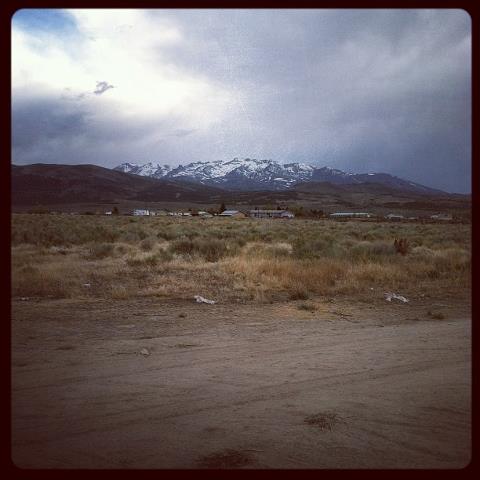There is that moment in time when you know everything is about to go horribly wrong. It’s that feeling that comes just after the doctor tells you something unimaginable, or when your car starts sliding on the ice, or when someone looks at you and you realize they are choking. It’s when you realize that all the terrible things that happen in the world actually could happen. They do happen. And they are happening to you.
* * * * *
Thursday, May 17th. We are going down a 10% grade (think very, very steep). The bus will not stay in first gear – it keeps kicking up to second, forcing me to use my brakes. Each time I push on the brakes the air pressure drops, and drops, and drops.
Suddenly my foot is flat against the floor and the brake will not stop us. I bring my other foot over. Now I’m pushing as hard as I can on the brake with two feet, pulling on the steering wheel to try and leverage my weight.
“Can you stop?” Maile asks me, a tremor in her voice.
We are only going ten miles per hour, but that is increasing, and soon we will be going much, much faster. I look up at her quickly. I don’t say anything. I just shake my head, no, and try to push the brake harder. Nothing. Ahead of us the road curves to the left. Beyond the road, a thousand feet of air and rock and evergreens. Beyond that, the town, like a tiny model village. Far beyond that, more snow-capped mountains.
We are driving through the Teton Pass, 8472 feet above sea level. And our brakes no longer work.
* * * * *
Thirty minutes before that, we climbed the Teton Pass, amazed by the view. The mountains’ peaks, a harsh mixture of rock and ice, split the clouds. Warnings of a 10% grade didn’t alarm me, although they would be almost double the highest grade (6%) we had encountered up to that point.
We stopped two or three times on the way up to let the bus’s engine cool. The angle of the road began to unsettle me – creeping along at 5 to 10 miles per hour up that mountain, sometimes it felt like the bus could simply stop and coast backward. Eventually we made it to the top.
The view was like nothing we had seen on our trip. The mountain, over 13,000 feet up (5,000 feet above us), was covered in evergreens, a hearty, rugged color broken only by the rock faces of cliffs. I didn’t look forward to the trip down the mountain, but I determined to keep it in first gear and ignore anyone behind us who got upset about our tortoise-like pace. They would just have to deal with it.
I like to keep my posts at around 500 words, so I’m going to continue this one tomorrow. To all of those folks who posed questions to me last week, I hope to have a post with the answers by Friday. Thanks! (And if you’d like to ask me anything about our trip, go HERE and leave a question in the comments.)

